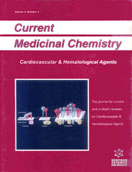Abstract
Bloodfeeding (hematophagous) parasites have evolved effective means of inhibiting mammalian thrombosis, thereby facilitating the acquisition and digestion of a bloodmeal. To date, specific inhibitors of coagulation and platelet function have been identified from numerous invertebrate species, representing an impressive array of convergent functional strategies. These parasite antithrombotics, in addition to playing a critical role in the diseases caused or transmitted by bloodfeeding invertebrates, may also serve as potentially useful therapeutic agents for the treatment of a variety of conditions associated with activation of thrombosis. A number of naturally occurring anticoagulants and platelet inhibitors have been evaluated in vivo, with some currently in varying stages of preclinical and clinical development. Because of the unique specificity and potency of parasite antithrombotics, these invertebrate natural products hold great promise for improving the treatment of a variety of human illnesses, including heart disease, stroke, and cancer.
Keywords: anticoagulants, thrombosis, platelets, coagulation, cardiovascular disease, stroke, restenosis, vascular biology, parasites, vector biology
 18
18













